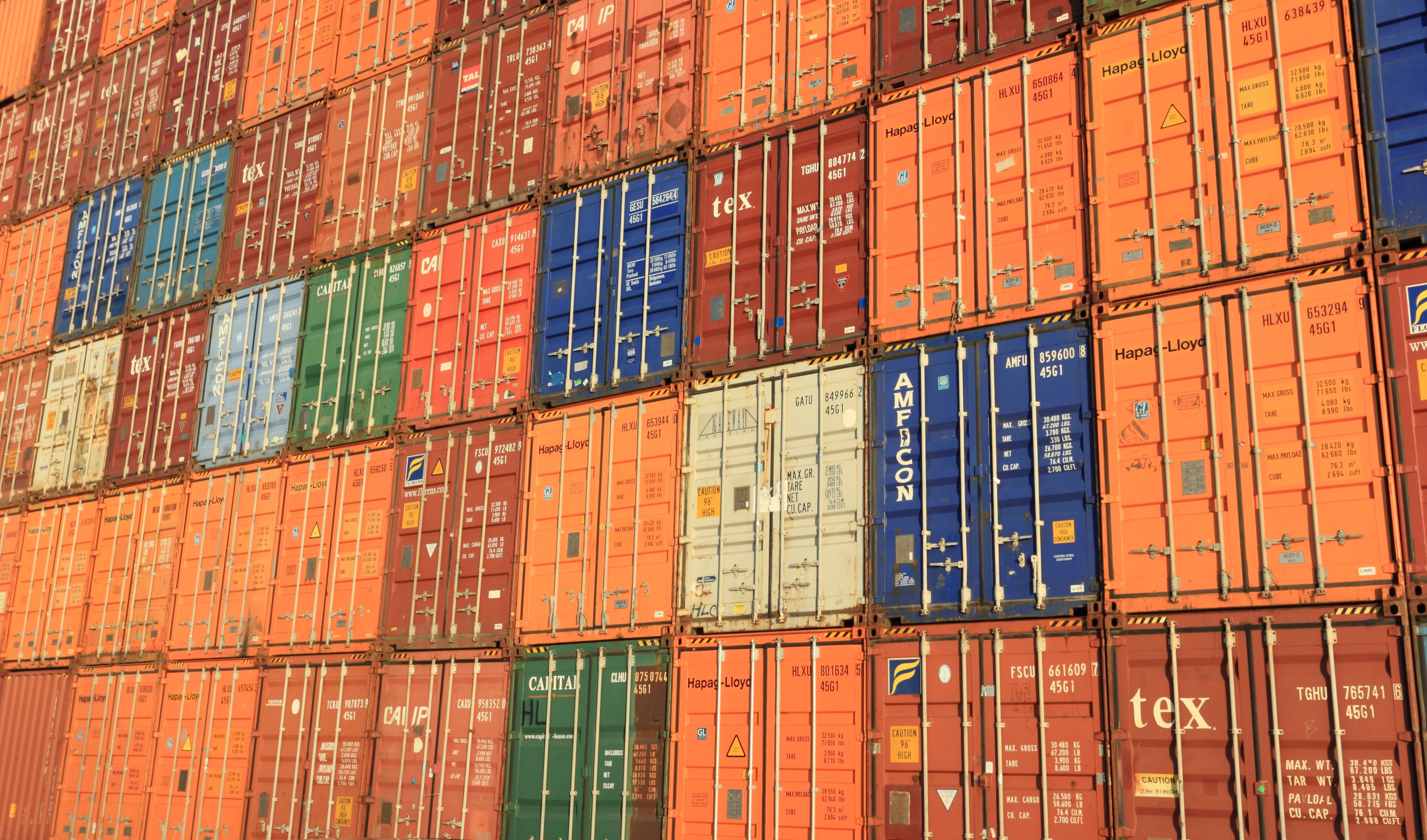Are you searching for the best place to earn ludicrous profits for your start-up delivery business? Look no further and start bidding for delivery contracts to the U.S. government!
It is undeniable how the COVID-19 pandemic has changed the landscape of transportation and logistics industries. The seismic lifestyle shift of Americans catalyzed the drastic rise in demand for efficient and effective delivery services. And that is why there is no better time than now to join the fray of delivery services providers.
What are federal delivery contracts?
Federal delivery contracts are your key to doing business with the federal government. These delivery contracts are legally binding agreements between you and the government. Under a federal delivery contract, you will provide the required logistics support required by your federal customers.

The Global Supply Chain Crisis and Its Impact
The COVID-19 lockdowns put a massive roadblock on the global supply chain, pushing prices to rise to an all-time high. Supplies for essential commodities grew scarce, and fuel prices skyrocketed. It is not an understatement to say that the massive supply chain disruption and inflation have posed tremendous challenges to delivery companies, particularly small businesses.
The Biden administration undertakes measures to tackle the supply chain bottlenecks, such as implementing the EO 14017 or America’s Supply Chains. Through this Executive Order, port congestions eased, the trucking workers were strengthened through TPA, and commercial vehicle licenses became more accessible.
Are federal delivery contracts worth it?
With the ongoing economic crisis, it’s natural to second-guess whether it is worth it to venture into the federal delivery business. But with great risks come even greater benefits. As one of the world’s biggest spenders of products and services, the U.S. government offers excellent opportunities for small businesses.
Opportunity to rake in huge profits
The COVID-19 pandemic paralyzed industries across the globe. Yet, the federal government contracting industry remains strong through it all. During the peak of the global pandemic in 2020, the U.S. government awarded a record-breaking $682 billion to federal contractors. And to top it all off, this upward trend is forecasted to continue in the coming years.
In this article, the federal government’s spending trends for the last five years were laid out. Each year, the federal government increases its spending on federal contracts, which opens up more opportunities for businesses, especially small businesses.
Special contracting assistance to small businesses
The federal contract delivery services are already dominated by big players like DHL, FedEx, and UPS, which can be intimidating to some. But, the federal government is pushing initiatives to level the playing field for every business. Federal agencies usually have an office dedicated to small businesses.
The Department of Transportation has an Office of Small and Disadvantaged Business Utilization (OSDBU). OSDBU supports small delivery services providers and small businesses operating in the industry in general.
Furthermore, there are also contracting assistance programs available at Small Business Administration (SBA). These programs provide significant support to qualified establishments, from assisting women-owned small businesses to linking small businesses with mentors.
Long contract terms
On average, a federal delivery contract can last from 12 months to 36 years. And if the federal agency you are working with is satisfied with your performance, a contract extension is also on the table.
The process of winning delivery contracts is excruciating. But once you have snagged your first contract win, it will fuel you for a longer time.
Guaranteed payments
Delinquent clients are a thing of the past! As America’s biggest institution, the federal government boasts an excellent reputation for paying its contracts.
The government’s payment terms vary depending on the nature of your contract. So before you enter into a contract with them, review the government’s payment schedule and scheme.
Transactions are transparent
Public resources are used to fund federal contracts. And since federal contracts are for the nation’s common good, the government is transparent about these types of transactions. You can view awarded contracts at SAM.gov and current federal spending at USASpending.gov.
How to win federal delivery contracts

Study the market
Market research lets you make informed business decisions that will help accelerate your growth. A masterfully executed market research lets you glean into the following:
Know the current demands of the market
Keeping tabs on the demands of your prospect federal customers lets you position yourself favorably in the marketplace. Since you will know your target’s pain points, you can package your products and services in a way that directly addresses their needs.
To stay abreast with the latest government contracting news, subscribe to the Executive Biz newsletter.
Know your competition
As the famous saying goes, “keep your friends close and enemies closer.” If you know the federal delivery contracting landscape through the context of your competitors, then you can price your goods and services competitively. And you will also know how you can maximize your marketing efforts by looking at how your competitors are doing it.
You can look up small businesses offering local delivery services and federal and state courier services using SBA’s Dynamic Small Business Search (DSBS). You can also browse SAM.gov to view new delivery contracts awarded by federal agencies.

Know the costs of starting a delivery business
The risk of putting up a delivery services business in this economic climate has never been greater. With fuel prices shooting up consistently, you have to manage your cash flow better if you want your courier business to thrive—let alone survive. And since you are planning to do business with the U.S. government, you should be able to handle different types of deliveries.
Additionally, you also have to take into account the costs that you will incur from these:
- Filing the legal documents to set up your business formally.
- Acquisition of your vehicles for your delivery business.
- Monthly costs for fuel and vehicle maintenance.
- Wages and benefits for your employees as mandated by federal law.
- Development of a smooth and secure logistics system for your business.

Know the business regulations
To win independent courier contracts from the government, you must pay close attention to the federal and state business regulations that govern the commercial industry. Given how stringent the government’s process is in selecting a federal contractor, you must ensure that your business follows these business regulations.
The business regulations may vary from state, but here are the primary federal business regulations you should know:
- Labor and employment – such as just wages and workplace hazard protection
- Taxes – such as individual income taxes and employment taxes
- Advertising and privacy – such as truthful advertising and customer privacy
- Environment – such as the Greenhouse Gas Reporting Program (GHGRP)
- Antitrust – unlawful monopolization and connivance to limit competition
Get familiar with FAR
On top of the business regulations that you must learn, you also have to nail down the Federal Acquisition Regulations or FAR. This is the playbook of federal contractors and contracting officers who wish to procure products and services.
The road to winning your first contract bid is riddled with complicated requirements and processes. Being familiar with the rules and regulations that govern this industry can help you navigate it somehow.
Know if you’re eligible for small business assistance programs
Local businesses usually don’t have equal access to opportunities that can let them compete with other government contractors on the same footing. And that is why there are available contracting assistance programs that you can apply to if you are eligible.

Register at SAM
The first step to winning government courier contracts is to become a recognized federal contractor. And you can do that by registering your business at the System for Award Management (SAM.gov) website. There is quite a list you have to prepare to register for it, but here are is an overview of what you will need:
Unique Entity ID (UEI)
The federal government is moving away from using DUNS Number to Unique Entity ID. You will receive your UEI at the end of your SAM.gov application. If your company is already registered at SAM.gov, but is still using your old DUNS Number, you can follow these steps.
General Company Details
You must supply your legal company name, physical address, Taxpayer Identification Number, etc.
CAGE / NCAGE Code
If your company resides within the U.S. and its territories, you can receive your CAGE Code at the end of your SAM.gov registration. If your business is built outside the country and territories, you must request your NCAGE Code before applying.
IRS Consent Form
This requirement is only applicable to U.S. entities.
NAICS Code
You can identify your NAICS Code by visiting this website. Among the list that you can find there, select which codes best describe your business. You can have more than one NAICS Code if you offer varying products and services.

How to write a contract bid for federal delivery contracts?
Once you have nailed down the necessary registrations to ensure that your company is eligible to bid for federal delivery contracts, it’s time to head into the next stage–winning a bid.
Prepare
Bidding for new delivery contracts requires immense time, effort, and patience to execute. To deliver a compelling contract bid, you must first establish a strong foundation.
Here is what you can do to prepare for your federal delivery contract bid:
- Perform a SWOT analysis of your business.
- Using the information from your market research, price your products and services competitively.
- Identify your target federal agencies.
- Discover potential teaming partners for the delivery contract.
Evaluate RFP
As its name suggests, the RFP, or Request for Proposal, is a document published by a federal agency to request proposals from government contractors. And also, the RFP is one of the most important documents you will encounter during the bidding stage.
This document will outline the demands and expectations of the federal agency to the government contractors. However, given its length—averaging around a hundred pages—reading through it can be daunting. To guide you, here are the sections you have to pay closer attention to:
- Section B – Supplies or Services and Price/Costs
- Section C – Description / Specifications / Statement of Work
- Section L – Instructions, Conditions, And Notices To Offerors
- Section M – Evaluation Criteria
Scrutinize every section of the RFP. Then, evaluate whether the federal delivery contract aligns with your business’s strengths and goals. If you are confident that your business can deliver the demands of your federal customers, then proceed to the next stage. Otherwise, keep looking for other federal agencies.
Writing
Crafting federal courier contract bids requires you to have great attention to detail, and possesses a clear and concise writing style. Here are some writing tips that can help you out:
- Develop a schedule that will consider the actual writing time, research, and review.
- Strictly adhere to the writing format stated in the RFP document.
- Your bid should be properly sectioned so evaluators can easily read through it.
- Be wary of the technicalities that can negatively affect your proposal, such as insufficient resources to deliver the contract requirements, non-compliant, etc.





